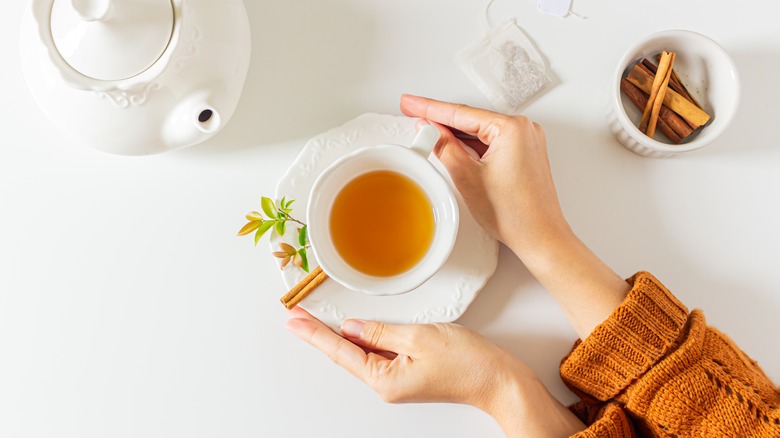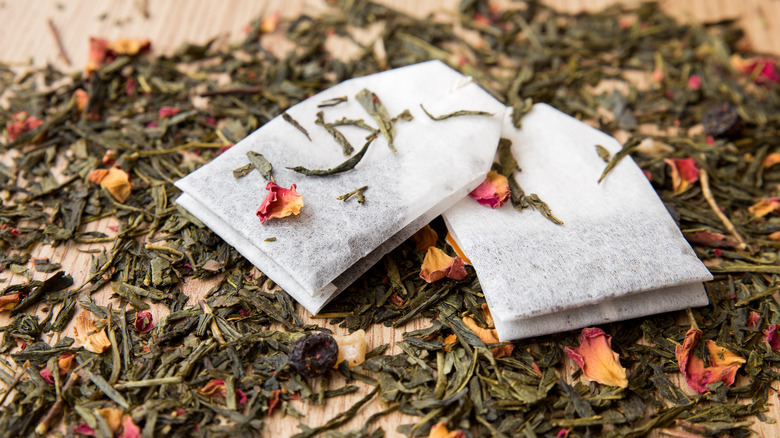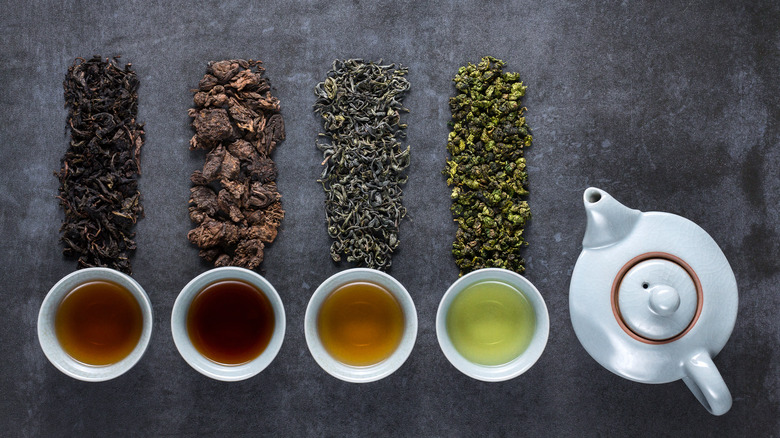The Simple Way To Get More Caffeine Out Of Your Cup Of Tea
Many people equate caffeine with coffee and turn to a cup of joe to jumpstart their morning or beat the afternoon slump. It is undeniable that coffee gives an energy boost — with about 95 mg per cup — but it is sometimes accompanied by unwanted side effects, such as stomach upset or anxiety.
As an alternative source of caffeine, many people turn to tea. Tea usually does not have the same side effects as coffee, since an amino acid in tea called L-theanine slows down the digestion process. Certain teas may also have a number of health benefits, such as boosting immunity, fighting inflammation, and even reducing risk of heart disease.
Despite these benefits, tea naturally has less caffeine than coffee — between 20 and 60 mg per cup, depending on the type of tea. If you are looking to boost the amount of caffeine in your cup of tea, consider using two tea bags instead of one.
The art of steeping tea
There are a few ways to get more caffeine out of your tea, but the two tea bag method is the easiest way to boost caffeine without sacrificing flavor. Other methods, such as steeping tea longer, could make your tea taste bitter.
Several factors go into steeping a tea bag, including time, the type of tea, and water temperature. These factors impact flavor and caffeine content. For example, green tea brewed at too high of a temperature can taste bitter or grassy, and black tea steeped for 1 minute will have less caffeine than black tea steeped for 3 minutes.
Usually, higher temperatures and longer steep times will result in a more potent, caffeinated cup of tea. If you would prefer to preserve the flavor of the tea, however, using two tea bags at the right temperature for the right amount of time will double the caffeine content of your cup.
The caffeine levels of different teas
Different types of tea have differing levels of caffeine, so your tea choice will also impact how caffeinated your beverage is. Teas with caffeine include black, green, oolong, and white. There are also some high-caffeine varieties gaining popularity, such as matcha (which is usually powdered) and yerba mate. Almost all herbal teas — which are made with blends of fruits, flowers, herbs, and spices, rather than actual tea leaves — are naturally caffeine free.
As for the caffeinated teas, black and oolong are the most caffeinated, with black tea containing between 50 and 75 mg and oolong containing between 30 and 45 mg. They are followed by green tea, with 15 to 30 mg, and white tea, with 10 to 15 mg. These are only averages, since preparation and variety also impact caffeine levels. In general, though, you can equate a cup of black tea brewed with two tea bags as having the same amount — or more — caffeine than a cup of coffee.


